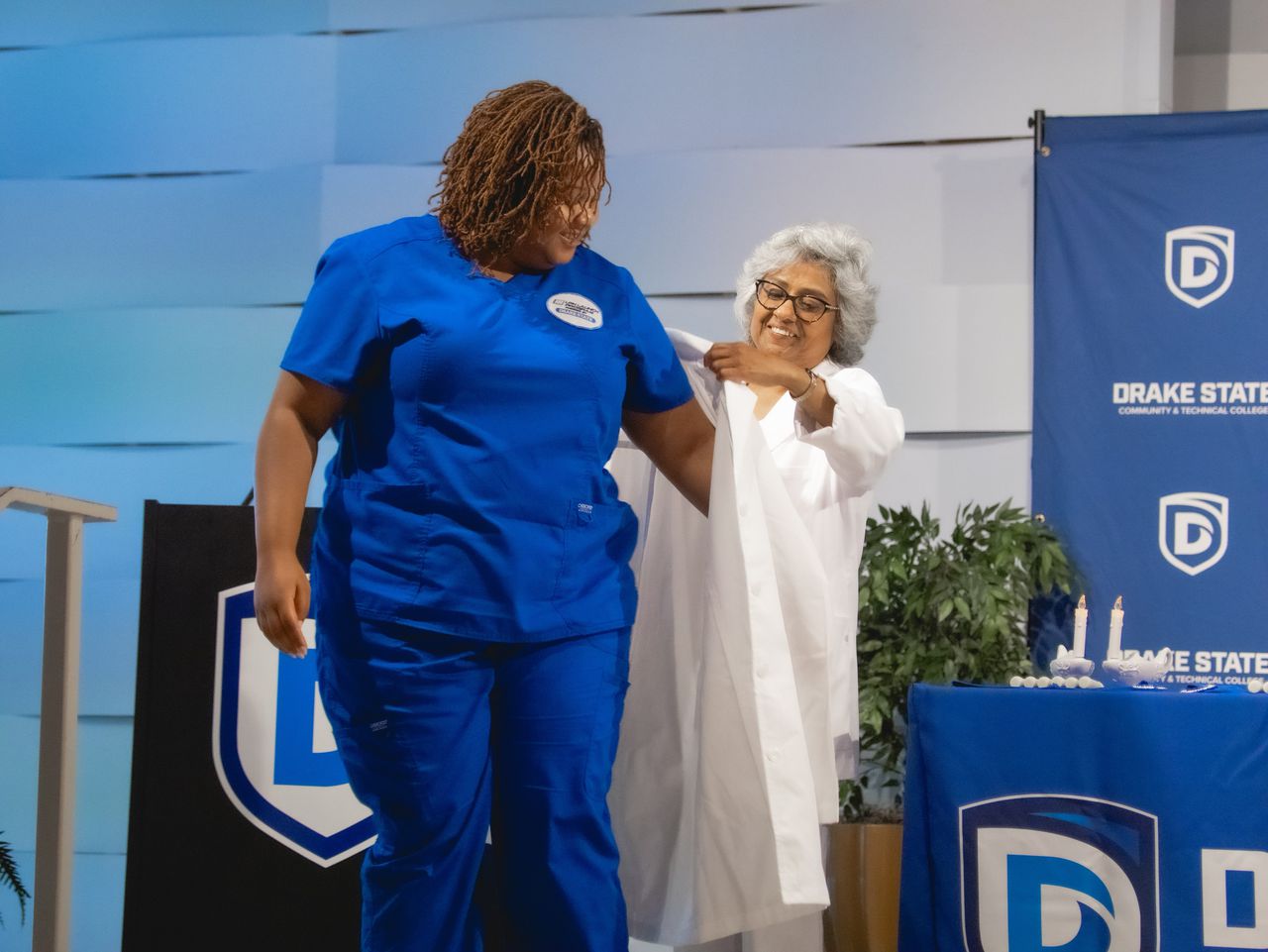Huntsville nursing apprentices gain practical knowledge while studying
Huntsville Hospital nurses taught Drake State Community and Technical College apprentices more than just how to care for patients while on the clock. Trinity Carlisle said she learned about nursing and self-care after class.
“They made sure we ate,” Carlisle, 25, said. “They made sure we had something to drink. They made sure we understood the subjects. We stayed after class so they could teach us even more. They were amazing. By far the best instructors I have ever had.”
Carlisle in August was part of the first graduating cohort of Drake State’s new licensed practical nurse (LPN) apprenticeship program, which involves three semesters of classwork and practical training at Huntsville Hospital. Drake State is offering registered nursing (RN) and now LPN apprenticeships under new guidelines, allowing community colleges to provide more paid apprenticeship opportunities.
Carlisle was one of about 400 nursing apprentices across Alabama last year. She graduated in August and said the one-to-one training she received during her studies made her better prepared in less time.
“I had a shorter training period and so now I’m officially taking patients on my own,” Carlisle said.
Drake State LPN instructor Stephanie McLaughlin said having mentorship can be a more personalized experience than a typical clinical where a nurse works with a group of six to 10 students. Apprentices can see more patients and gain more practical hours than is required, all while lessening the nursing shortage.
“They are basically practice ready once they graduate,” McLaughlin said. “So there’s no lag time in getting them ready to take care of patients on their own.”
Nursing apprentices can get more training in administering medication, changing dressing bandages, and other medical skills. McLaughlin said they also learn soft skills like time management and prioritization.
Scheduling can be challenging for instructors to find seasoned nurses to mentor the students. Learning the material and applying it to her work life was a challenge for students like Carlisle. However, the benefits of using their classwork in real-life situations and the camaraderie-building were numerous.
“We became a family,” Carlisle said.
